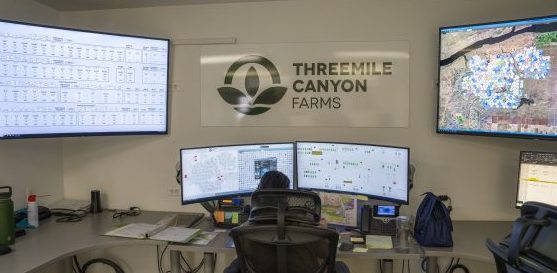Local circuit judge candidates make their cases
Published 8:00 am Monday, April 22, 2024

- Attorney Kit Morgan, president of the Bar for the 6th Judicial District, moderates the circuit court judge candidates forum April 19, 2024, at the Pendleton Center for the Arts.
PENDLETON — The four candidates seeking to fill the Position 5 seat in the 6th Judicial District took their cases to the public during a forum Friday night, April 19.
Trending
The bar association for the district hosted the event at the Pendleton Center for the Arts. Kit Morgan, president of the local bar, moderated, and about 20 people attended. The forum allowed the audience to ask questions of the candidates.
“Judges have tremendous power to determine the fates of people’s cases, and sometimes their lives,” Morgan said while starting the forum, “so I think it’s important for the community to come and hear from the candidates and ask questions.”
Position 5 is open after Judge Christoper Brauer retired at the end of 2023. Gov. Tina Kotek in February appointed Judge Joanna Marikos to the seat. She has been the treatment court judge and a pro tem judge for the 6th Judicial District. Before that, she worked in private practice with a focus on bankruptcy, estate and family cases.
Trending
The other candidates running for the the position are John Ballard, a family law and criminal defense attorney; Jameson Hayes, a Umatilla County deputy district attorney; and Jill Weygandt, a former public defender and current criminal defense attorney.
Ballard said he’s used to a fast pace and a heavy caseload and believes his “extensive background” in family and criminal law would serve him well on the bench.
Hayes, in his work as a deputy prosecutor, has handled a varied caseload, he said. He’s prosecuted major crimes cases, juvenile cases and cases on the mental health docket and in drug treatment court. He said his focus has been on helping people and watching them change their lives.
Weygandt worked as a public defender for 10 years before joining private practice criminal defense in 2020. In 2023, she started her own practice, Weygandt Law LLC, with an associate attorney. She said her ideals include working hard and having integrity while also going after what she wants.
One audience member asked what personality trait the candidates have that they believe would serve them well on the bench.
Ballard noted his work ethic. He said spending time researching and analyzing, as well as working efficiently, would serve him well as circuit court judge.
Hayes said being kind is the trait that matters on the bench.
“I believe that even though sometimes I do make a mistake,” he said, “that being nice is extremely important and I think there’s no reason for things to be not nice, that we can be kind to others, we can be kind, as a judge, (and) treat defendants with respect, with compassion, and I suppose that boils down to being kind. And I truly try to do that every day.”
Marikos said compassion is the most important trait. Whether finding in favor or against someone, having compassion for them is extremely important to her.
“The most important thing I can think of that I’ve done as a legal professional is give people a voice,” she told the audience. She said that also is a central part to how she approaches her work on the bench.
Weygandt said a combination of humility and empathy is the personality trait she believes would serve her well on the bench. Making sure people feel as comfortable as possible in the courtroom and the ways it works, which can be confusing for people who are unfamiliar, is important.
Another audience member asked candidates if anything more could be done regarding drug use and addiction issues in the area. Each candidate said there is more that could be done.
With drugs often come other issues, Weygandt said, such as generational addiction or mental illness. She said she believes the biggest lack of resources is in local treatment providers. It’s hard to get people into treatment programs, she added, especially for people convicted of certain kinds of crimes, such as sex crimes.
Marikos said there are many struggles around resources involved in the drug treatment court, but she’s been amazed at how committed treatment providers are. Everyone is struggling under the load of how many people need services and support, but people are coming up with creative ways to serve as many people as possible, so she’s hopeful for the program’s future to help people maintain “clean, sober and stable” lives.
Ballard said he agrees treatment is important, but there needs to be a deterrent. Jail time, for example, he said, allows people to sober up enough to make healthier, clearheaded choices for themselves and their futures.
Hayes also mentioned the need for a deterrent, but in the context of using a lack of that jail time as an incentive. People don’t want to be in jail, and so offering them ways to avoid that is motivational. Additionally, he said, hearing from people who have gotten clean and can serve as beacons of hope is important to helping people in need.
Morgan, the moderator, asked candidates how they would consider cultural differences when evaluating a case.
Marikos talked about how as the daughter of an immigrant, she grew up with an appreciation of cultural differences, and how she now tries to meet people where they are.
Ballard said it’s important for a judge to have consistency in how they rule in the same kinds of cases.
Hayes said there can’t be allowances because of cultural differences, but they must be taken into consideration and given space.
Weygandt said certain groups are treated differently already, such as Native American children. Judges are required to consider what lens they’re seeing the situation through, she said, and paying attention to differences can make the court system more comfortable for people, such as members of the disabled community, like her deaf mother.









